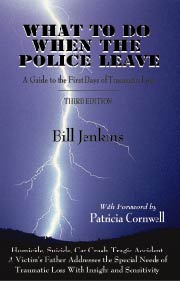NO END FOR VICTIMS FAMILIES
We have endured years of relentless legal wrangling, unending legislative assaults on the sentences being served by the offenders in our loved ones’ murders, and non-stop media attention to our tragedies by the media, much at the hands of the well-funded juvenile justice advocacy movement. The future of sentencing for teen killers is very much in flux in the aftermath of the Miller, Jackson, Graham and Roper decisions in the years after those landmark Supreme Court rulings reformed the sentencing of teen killers and other extremely violent juveniles.
To summarize: Hundreds of millions of advocacy dollars spent to earn new sentencing hearings for approximately 1300 teens serving life for committing capital murders. Untold millions of taxpayer dollars wasted in redoing legal proceedings in long completed cases. Offenders and their families hopes raised and then dashed when most of them are not freed. And, of course, we victims families horribly and permanently retraumatized. No end for us.
In other words, even if juvenile justice advocates “win” by overturning every life sentence for a teen killer in the USA, these life sentences remain legal and constitutional. Most will be re-sentenced to long or even natural life sentences. The sentences will continue to be earned by new teen killers who represent the most dangerous offenders among us. Juvenile Justice advocates will have spent insane amounts of money on these killers while not helping their victims families in any way.
WHAT WE HOPE
What we ask for is legal finality. At some point, victims families deserve to see some end, some finality, to the legal battles in the cases against their loved ones’ murderers.
Here is a column by the NOVJL President featured in the New York Times that states our HOPE for the future of sentencing of teen killers – that the victims will be placed first and foremost in those decisions.
One Florida Judge’s reaction to the Graham ruling in his re-sentencing of an offender gives us an indication of what is likely next for juvenile life sentences:
“Circuit Judge Chet A. Tharpe disagreed with a U.S. Supreme Court decision forcing him to resentence teenage rapist Jose Walle, who was only 13 when he terrorized two Apollo Beach waitresses at gunpoint. But on Wednesday, he obeyed the high court, which deemed life sentences unconstitutional for juveniles who didn’t kill. Walle hung his head as Tharpe sentenced him to 65 years in prison, which he will begin to serve after completing the 27 years he got in Pinellas for another rape. Taking into consideration credits prisoners get, the 16-year-old would be about 91 when he gets a chance at freedom.”
We believe this story says it all. Even after a ruling limiting the application of LWOP only to teen murderers, most violent teen criminals will face – even in a best case scenario – a re-sentencing that could leave them off approximately no differently.
One example is the case of Addolfo Davis from Illinois, recently re-sentenced to natural life after many years battling for a new sentencing hearing.
Where life sentences are won, and term of year sentences are ordered, we can envision a scenario in which JLWOP cases would win new sentencing hearings and many offenders would end up with 1000 year sentences instead, in state after state, case after case.
We wish to take this important opportunity to point out to those who are advocating against life sentences for these serious crimes that when they have worked so hard to try to get a new sentencing for guilty violent offenders, the new result may not be a whole lot different. And we will, in the meantime, have spent a lot of taxpayer dollars, and agonized a lot of victims families, and further clogged our courts.
The Retroactivity Question and State Legislative Battles Post-Miller
Most of 2012-2015 will be spent in court and legislative battles across the nation arguing and applying the 2012 Supreme Court ruling in Miller v Alabama. This website is filled with much more detail about the various state legislative proposals and decisions. Offenders attempting to overturn their long prison sentences for the horrific murders they committed are too numerous to list here, though some challenges will be featured elsewhere on this website. Cases are working their way through courts all over the nation.
State legislatures and state Supreme Courts are split on the issue of retroactivity and so we head back to the Supreme Court in late 2015 or early 2016 for Montgomery v Louisiana. We hope they will not apply the court’s ruling retroactively, which we understand to be legally correct.
While time will tell, the post-Graham, post-Miller rash of offenders attempting to challenge the constitutionality of their life sentences for murder resulted in the sentences for murder only being challenged for those with mandatory sentences.
The Justices during oral argument in the Miller v Alabama and Jackson v Hobbs cases affirmed the on-going constitutionality of JLWOP sentences while addressing the problem with mandatory sentencing that juvenile offenders are subject to when they are transferred to adult court.
Beyond Juvenile Sentencing
Mandatory sentencing across the board nationally may be an issue going forward. The court in Miller decided that life sentences for juveniles, like the death penalty for all adults, must be considered on a case by case basis. Might this signal a trend for all mandatory sentences nationally? Well-funded advocates for criminal justice reform have stated that their goal is an end to all natural life sentences, arguing that parole is a right.
Three times now, in Roper in 2005, in Graham in 2010, and in Miller in 2012 the Supreme Court has specifically stated that life sentences for teen killers are constitutional. The Roper ruling actually relies on the existence of JLWOP in order to makes it determination. And the plaintiffs in the Graham and Miller cases asked the court to declare all JLWOP sentences unconstitutional, and the court rejected those opportunities.
Life without parole for teen killers in the United States under the age of 18 in extremely heinous and aggravated cases remains available and the dominant law of the land, as it is now and should continue to be. Rare, but legal. Tragic, but sadly necessary in extreme cases of the most violent offenders.











